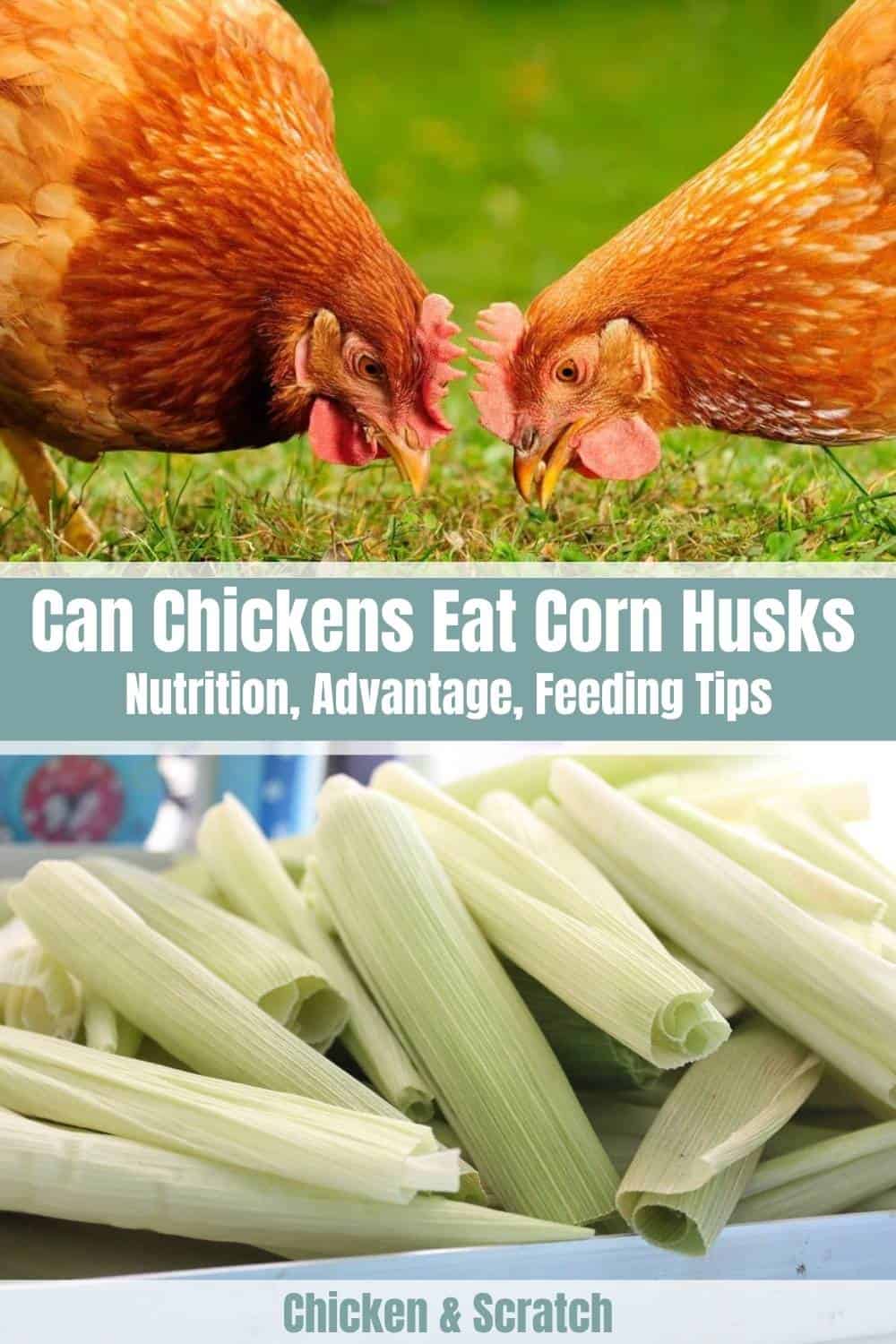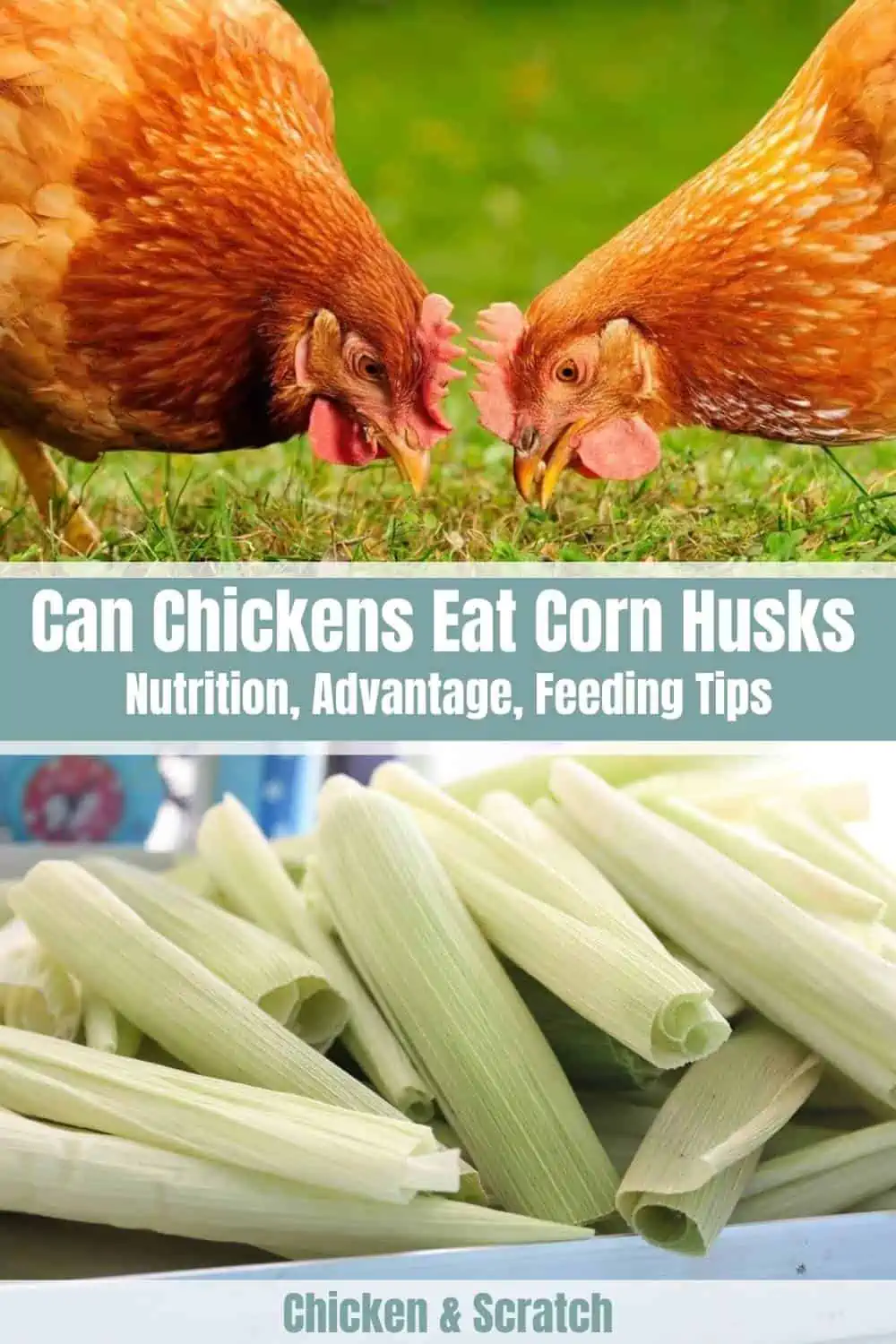Chickens are not very picky eaters. Their approach to food and dietary preferences differ significantly from many other animals. Most creatures care about what food tastes good for them. In chickens’ case, they are more visual eaters. Meaning, they see something, they take a look if it’s edible, and then peck! So, can chickens eat corn husks?
Corn and Chickens
Corn has become quite famous for its nutrients, availability, and price. Corn, along with rice and wheat, are some of the world’s most essential and popular food crops.
In most places, these crops are the area’s staple food. Rice, for example, is a staple food for a lot of locations all over the world. These crops built their reputations as they provide satisfaction and the daily nutrients the body needs.
Corn is a good snack for chickens but in moderation. Both the kernel and husks are edible for your chicken friends. In fact, corn is one of the ingredients when it comes to feeding production. It’s okay to feed them both cooked, milled, raw, or corn that has undergone processes like grinding to be used in feeds etcetera.
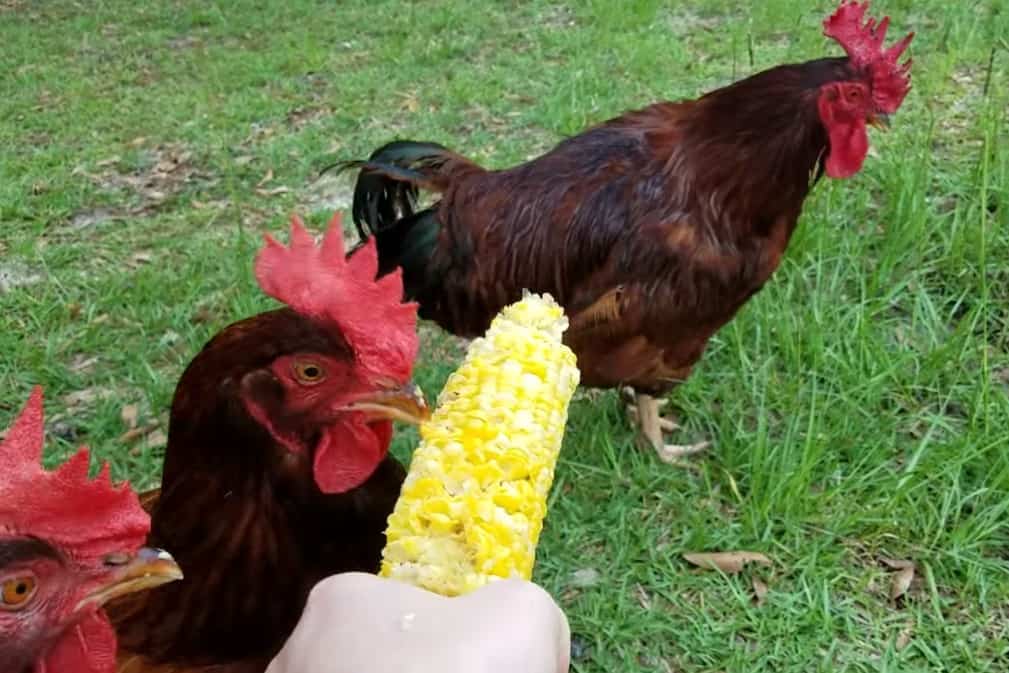
For chickens, they can eat many things, but like humans, they also need to watch how much they eat. Corn has a yellow pigmentation that can help in the yolks of your hens. However, feeding your chickens with too much corn can affect their health. Corn can cause a fatty build-up resulting in your chickens becoming overweight.
While corn can be the easier option because of its affordable price, and its instant provision of carbohydrates for your chicken, it has a low nutritional benefit count. In short, corn is suitable for providing carbohydrates and an energy charge to your flock, but corn does not have much to offer in terms of the overall nutritional value.
Corn is high in calories and can lead to fat development in animals that consume it in excessive amounts. And so, too much of them can cause health issues to your flock. With excess corn intake, your chickens can mindlessly accumulate empty carbohydrates.
These empty calories can cause them to become overweight and, simultaneously, undernourished. Obesity can cause several diseases and will leave your flock vulnerable to sickness and health complications.
All About Corn Husks
husks are the outer protective layer that encases a corn cob. People don’t pay much attention to them and are often neglected because people are often more focused on the star of the night, which is the kernel!
However, corn husks are used in many ways and can serve as snacks for your chicken friends. One of the most popular uses of corn husks is for wrapping different kinds of food. From tamales to wrapping seafood, corn husks have been a trusted assistant.
These trusty covers aren’t seasonal, and so they are available the whole year round. Their availability has made them one of the most valuable crops out there. Many businesses worldwide also use corn husks as part of their dish, whether it be as food wrap or plating. Nonetheless, corn husks prove their use in their respective fields.
Corn husks have also been a trusted friend used for crafts. It may be new to most people, but corn husks are also used to make bows, dolls, and many other creative things one can think of with these husks. So, it’s not just for cooking but for setting up creative expressions as well. Corns are quite the all-rounder themselves, too.
Just like how these useful husks set their name Turns out, corn husks have also taken a spot in chicken hearts and stomachs. Corn husks have been known to be something discarded after getting the cob and kernels. It turns out they have a lot of potential going on for them. All it takes is experimentation and creativity.
Now, corn husks have been used in crafts, art, food preparation, and as food for flocks too. They have paved their way into these industries and proved that they are more than the husks people usually throw away. They can be assistants in cooking, materials for crafts, and food for chicken friends.
Corn Husk Nutrients and Health Benefits
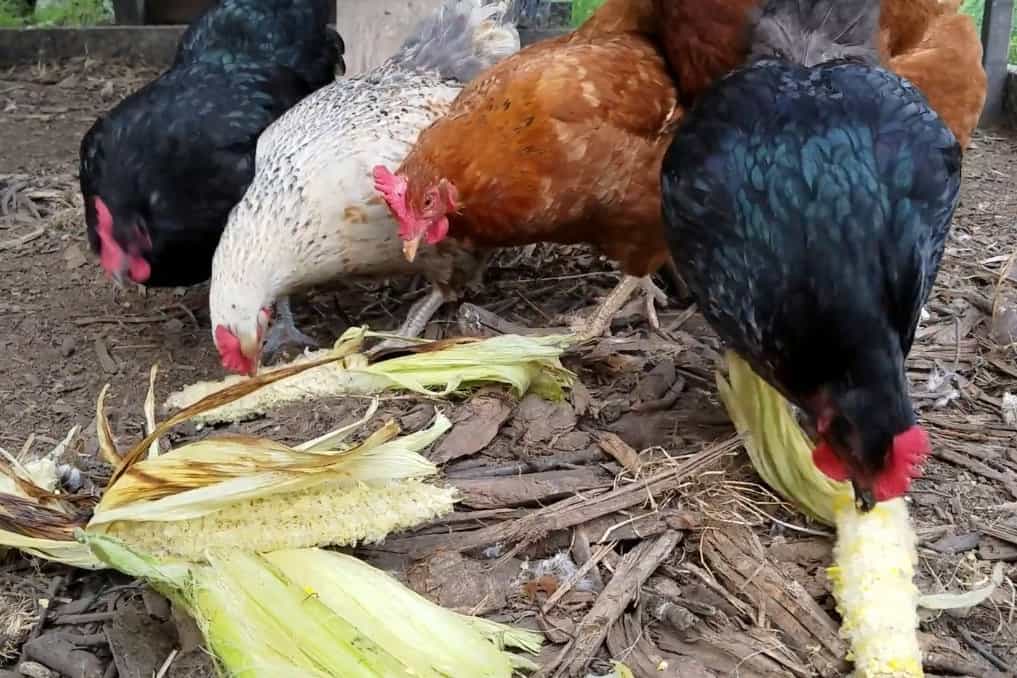
Corn husks have been so accessible that nobody ever asks if it’s safe for your chicken friends to eat. To answer whether it is safe, yes, it is. Your flock can eat the coverings of the corn, and it will not harm them.
Chickens can’t also expect so many nutrients from husks. Corn husks are good for quenching your flock’s hunger. They are usually fed to chickens as snacks, giving chickens something to munch on during the day. They are perfectly safe for your chicken to eat! Thus, if you are contemplating whether it is okay or not, the answer is it’s totally okay.
Next to the question of being edible or not comes the “Is it healthy?” question. Are corn husks healthy for your flock? Compared to the corn kernel, corn husks contain significantly fewer nutrients. Husks can almost be void of crucial nutrients for chickens.
For humans, husks are usually discarded because they can be hard to eat, and their overall texture is not fit for digestion. People typically use them for dishes like tamales, and grilling, boiling other things which after, the husks are discarded instead of eaten.
Corns are usually the crop that can give your pets extra fat. Corns are known to be high in calories. They are used as fattening for pigs most often. Therefore, we can conclude that too much corn can cause extra and unnecessary fat for your flock.
What about the husks? On the other hand, the husks are okay to eat because they don’t have many nutrients to provide anyway. However, the amount should also be monitored as too much of it may cause your chickens to slow down, feel bloated, or gain unnecessary weight in their stomachs.
Food intake, no matter what type of food it is, has its limitations. This is true even for animal friends. It’s beneficial and advantageous for a flock owner to be mindful of how much food his flock is getting and how much he is supplying them. Too much of anything can be dangerous. Despite their appetite, chickens have their limitations too.
How to Prepare Corn Husks
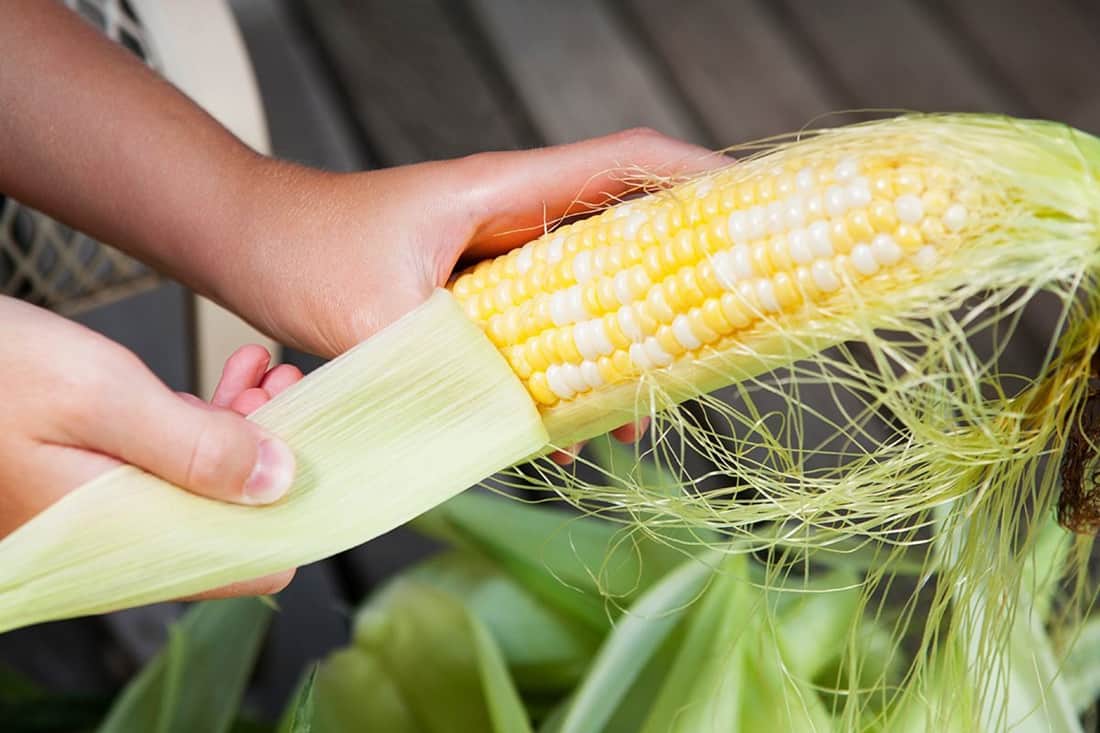
Corn husks and their texture can be a little bit challenging because they are pretty hard to digest. This is one of the reasons why humans just use them for wrapping and design instead of eating them.
While it’s okay for your flock to just peck on them on the ground, it would be helpful to have some assistance. Yes, it’s possible to prepare corn husks for your chicken friends. This is a massive help for them, especially for their digestion.
Steamed baby corn husks are better for your chickens than raw ones. Steamed corn husks are softer, allowing for easier digestion. You can get the corn husks as you peel the corn in the kitchen. Corn kernels usually go steamed in many households.
1. Peel the corn – First things first, get the corn husks separated from the corn. It’s good to choose the softer ones, and these are usually the husks in the inner layer of the corn protection cover.
2. Wash the husks – Cleanliness is also an essential thing for chickens. Despite pecking the ground for food, these creatures are enticed by clean and edible food rather than dirty-looking ones. And so, clean corn husks are more palatable for your chicken friends.
3. Steam – After steaming the corn, you can save energy by getting the corn husks in there, too. If the water level is already low, you can add more as what you would normally do when steaming corn. The process does not differ much.
It goes just like how you steam corn. Nevertheless, it’s essential to check the texture of the corn husks. Once you deem them the right level of softness, you can turn off the fire and let them cool.
4. Chop them into smaller pieces – this is a helpful way to feed corn husks to your chickens as they have no teeth and need assistance in eating stuff like corn husks.
You can also puree your corn husks! This is pretty much easy as you just need to wash the husks and place them inside your blender or food processor.
Summary
Can chickens eat corn husks? This has been quite the debate and a hot topic for flock owners and people with flock interest around the world. The answer is simple, but it’s important to have a conversation about your flock and their intake. By doing so, you are making sure that they are safe and healthy.
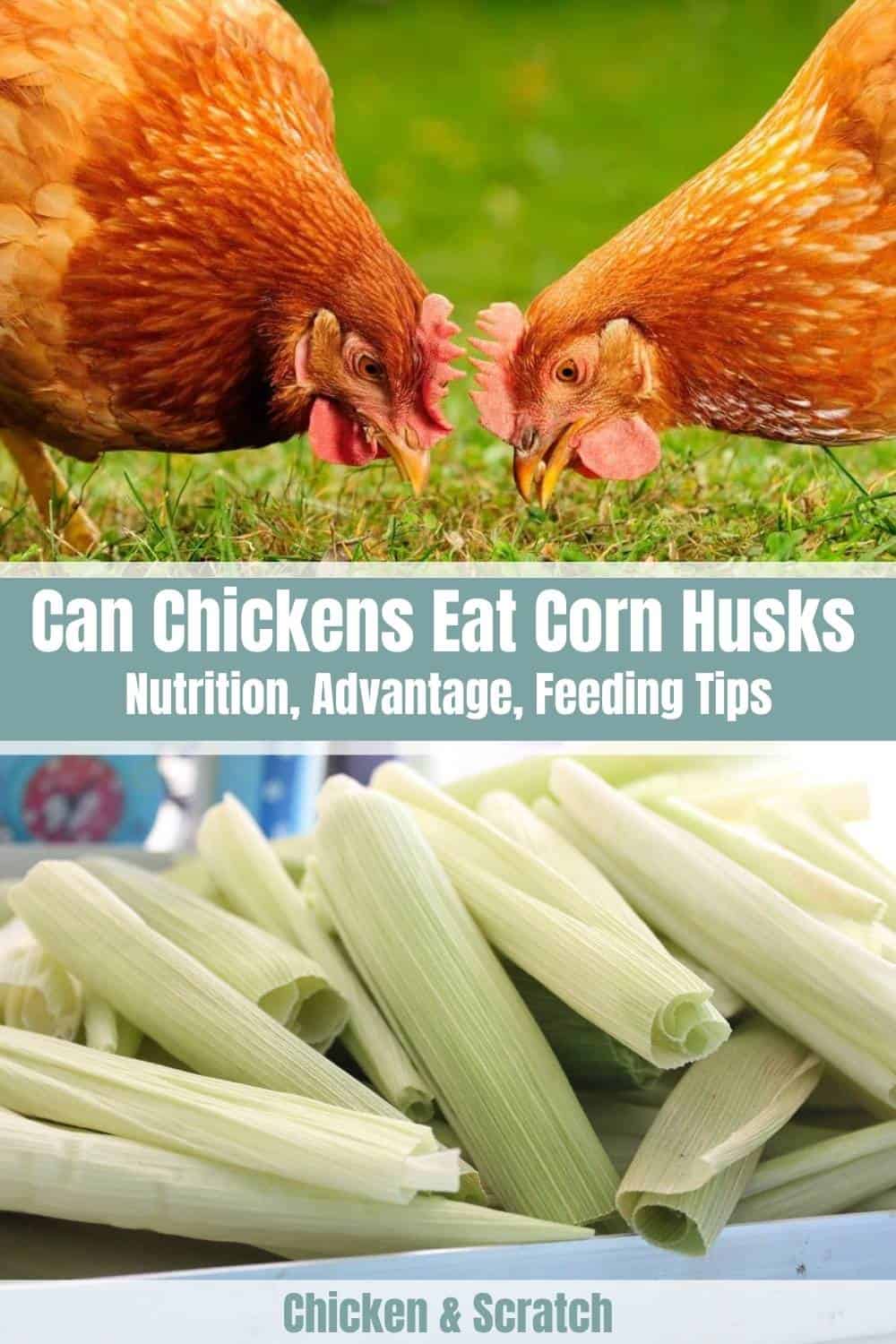

Joseph Hudson has been raising chickens for over 15 years. In 2018, he completed the Agriculture & Natural Resources program at Mt. San Antonio College. He currently raises over 1400 chickens on his 7.5-hectare farm. He keeps sharing his experience on raising healthy and happy chickens on Chicken Scratch The Foundry.
